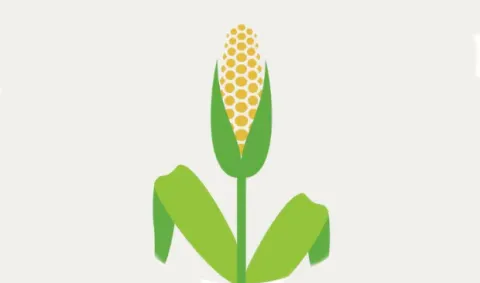What are agricultural biologicals?
Biologicals are innovative agricultural technologies that harness the power of nature to protect and improve crops. The products diversify the farmer’s toolbox to manage and benefit food production, protecting and improving plants’ resilience against our increasingly stressed environment.
Biologicals boost sustainability in farming by supporting regenerative agriculture, leading to more productive and profitable farms.
Biological products are either derived from or inspired by nature itself, and they are complementary to traditional inputs. These products may include organisms, natural molecules, plant extracts, and other bio-based materials.
Our most vital crops are vulnerable to pests and climate change.
How biologicals can help make potatoes heat resistant, and grapes pests free.
What type of products are classed as biologicals?
In agriculture biologicals fall into three categories:
• Biostimulants to enhance and strengthen crops
• Biocontrols to control pests and disease
• Nutrient use efficiency (NUE) products including biofertilizers to improve nutrient availability and uptake.
Why are biologicals important?
Both global food consumption and the demand for more complex food are constantly growing. Food production needs to increase by 70% by 2050 – and it falls to farmers to deliver, despite increasing stresses from climate change.
Farmers must have new, sustainable technologies to increase crop productivity despite multiple challenges. Extreme weather, water scarcity, resistant pests and diseases increasingly cause crop losses. Up to 30% of global production of the major staple crops of wheat, rice, maize, potato, and soybean is lost. Up to 70% of yield losses in major crops are lost due to adverse environmental conditions.
Growers are adopting regenerative agriculture practices and leveraging data, digital apps and precision agriculture – but these are not enough. This is where biologicals contribute to filling the gap – offering farmers more flexibility and a richer choice of tools, all of which support reaching productivity and sustainability goals.
Biologicals – advanced tools for farmers



What are the differences between biocontrols, biostimulants and nutrient use efficiency products (NUE)?
Biocontrols control pests and diseases
Biocontrols shield crops against insect pests, fungal and bacterial diseases, nematodes and weeds. One example is Syngenta’s products that work with pheromones, nature’s chemical signals used by pests to communicate.
Take grapes, which are one of the most economically valuable fruit crops. Syngenta has developed EXPLOYO Vit , a biocontrol using pheromones to disrupt pests’ mating process. This reduces the chances of pests becoming dominant, protecting harvests and growers’ incomes, as well as creating a more diverse biosphere.
Biostimulants
Think of biostimulants as “agricultural vitamins” that bolster plant strength, helping them withstand drought, heat, cold, and other stresses, and enhance crop quality. Biostimulants can be applied to plants, seeds or to the root environment. Syngenta biostimulants include products that can strengthen roots and promote cell growth, as well as improve soil health by enriching the micro-biodiversity underground.
The potato feeds more than 1 million people around the world. It might look robust but it’s sensitive to frequent heatwaves and lack of water. A biostimulant like QUANTIS from Syngenta enhances potato crops’ tolerance of heat and water deficiency. Heat-relieving nutrients and amino acids give the stressed potatoes’ leaves a boost to continue photosynthesis, sending proteins to the crop. The plant remains greener for longer, giving it a better chance to reach its full nutritional potential.
Nutrient use efficiency products (NUE)
Nutrient use efficiency products including biofertilizers also contribute to plant growth, development and yield. Certain NUE boost plants’ nutrient absorption by improving root structures and promoting plant growth and soil health. Syngenta’s NUE also improve nutrient availability in the soil by enhancing natural processes like nitrogen fixation and phosphorus solubilization.
How do biologicals support regenerative agriculture?
Farmers are increasingly adopting regenerative to nurture and restore soil health, protect the climate, water resources and biodiversity, and increase productivity and profitability. Biologicals play a part, supporting farmers to use natural resources, like water, and farm resources, like inputs, more efficiently. As they increase yields, biologicals prevent the expansion of farmland.
Biologicals are applied precisely, and have a low impact on the surrounding environment, protecting biodiversity. They contribute to healthier soils, improving soil’s ability to retain scarce water and to capture and store more carbon, reducing the greenhouse gas emissions from agriculture.
Biostimulants tackle water scarcity
Water scarcity is one of farmers’ greatest challenges. Watch how Syngenta Biologicals’ biostimulant increases water productivity in an arid grape-growing region.
How do biologicals support soil health?
Soil health is a priority for growers around the world. Solutions to maintain and improve soil health need to be part of a holistic, ecosystem-based approach to plant and soil health.
- Biological solutions improve soil health through a variety of approaches.
- Enhance the ecosystem of micro-organisms below ground.
- Improve soil’s ability to retain water and nutrients.
Increase soil’s ability to capture and store carbon from the atmosphere.
Improving soil health with biologicals calls for a combination of biological products and agronomic services to identify the needs in a specific field and crop. Soil scanning and precise high-resolution soil maps give growers the information needed to make the best decisions on solutions.
How do biologicals boost farms’ profitability?
Biologicals have many beneficial effects that contribute to making farms viable through increasing farm sustainability and productivity. Biologicals reduce crop losses, optimize the use of inputs, promote plant growth, and improve soil.
Biocontrols protect the rice harvest
The rice stem borer can reduce rice harvests by 50%. Watch how a biocontrol from Syngenta halts pests in a major rice-growing area.
What’s needed to get biological products into the hands of farmers quickly?
Farmers need education to build knowledge of biological products and how to use them – something which Syngenta offers to customers. To get biological products into farmers’ hands quickly, regulatory review, trade rules and market access need to be efficient.
What products does Syngenta offer?
We offer a range of advanced biocontrols, biostimulants, nutritional use efficiency products and other complementary products, all of which work to increase quality and quantity of crops.

